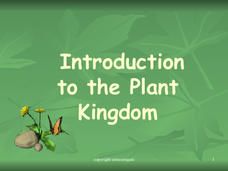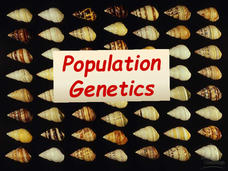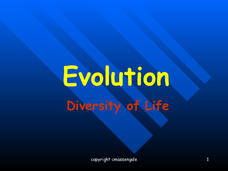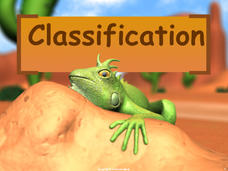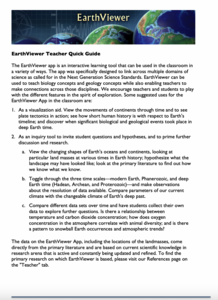Serendip
Should States Repeal Their Laws Banning First Cousin Marriage?
Around half of the states in the US ban first cousin marriage, but does science support that ban? Scholars work through genetic analysis of the risks to understand if more states should ban the practice—or if some should remove it. They...
Serendip
Mitosis, Meiosis and Fertilization Vocabulary Review Taboo Game
Can you describe a gamete without using the words sperm or egg? Scholars play a vocabulary review game where they try to get other players to guess their words. Each card has the target word as well as two related words they must not...
Serendip
How Do Muscles Get the Energy They Need for Athletic Activity?
Every muscle movement requires energy, but where does that energy come from? Scholars answer this question and more as they complete a worksheet. By following the directions, completing research, and discussing it as a class, they begin...
Biology Junction
Viruses, Viroids, and Prions
Are viruses living or non-living? According to the presentation, they are both and neither. Clearly, this requires clarification and an in-depth look at viruses, viroids, and prions. Young scientists learn about the history, structure,...
Biology Junction
Introduction to the Plant Kingdom
Plants provide humans with food, shelter, and medications. Scholars gain a better appreciation for plants after learning their functions, divisions, and early ancestors. Each sub-topic includes slides highlighting vocabulary and...
Biology Junction
Population Genetics
Genetic variation shows the health of a population, yet cheetahs show very little variation over that last 10,000 years. Scholars learn the importance of genetic variation in populations after viewing an informative presentation. It...
Biology Junction
Lamarck vs. Darwin: Introduction to Change in Organisms
How are traits passed down from parents? Jean Baptiste Lamarck and Charles Darwin envisioned conflicting theories. Learn about both scientists and their theories with an insightful presentation. Giraffes and dogs serve as examples of...
Biology Junction
Evolution – Diversity of Life
Scientists noticed animals with backbones share similar bone structure despite having different forms, such as fins, arms, and wings. Young scientists gain an appreciation for evolution by understanding the history of the theory. They...
Biology Junction
Origin of Life
Aristotle explained the idea of spontaneous generation, a concept which lasted almost 2,000 years before scientists proved it wrong. Scholars learn about the history of our understanding of the origins of life. They read examples of...
Biology Junction
Classification of Life
Did you know scientists identify more than 13 billion species of organisms, and they discover more almost every day? An interesting presentation demonstrates how scientists keep track of so many species. It also shows how they...
Biology Junction
DNA Technology
One of the first biotechnology breakthroughs occurred in 1982 with the creation of synthetic insulin. Young scientists learn about DNA technology with a presentation and accompanying worksheet. It focuses on DNA extraction and...
Biology Junction
DNA and Replication
Enzymes proofread DNA, reducing the error rate to one in one billion base pairs. Learn about the important process and so much more with the help of a presentation. It opens with the history of DNA and the major scientific contributions...
Biology Junction
Strawberry DNA
Humans eat around 93,205 miles of DNA in an average meal. Scholars learn how to extract DNA from a strawberry using a presentation. It walks through each step and explains why the process works. Comprehension questions encourage...
Biology Junction
Cellular Division
Based on current scientific knowledge, all cells come from preexisting cells. Scholars learn about cell division, cell replication, mitosis, meiosis, and more with a PowerPoint. It describes the differences between prokaryotes and...
Biology Junction
The Structure of DNA
Did you know that all life on Earth has DNA? Explore the importance of the molecule by learning about its structure. The unique DNA shape, bases, and bonds allow the incredible diversity seen all over the world.
Biology Junction
Genetic Problems
In a world of DNA testing popularity, understanding how to solve basic genetic problems allows scholars to better understand and interpret test results. They work through many different types of genetic problems using statistics, Punnett...
Howard Hughes Medical Institute
Classroom Activities: EarthViewer
The spot you are standing in right now—how did it look 2,000 years ago, one million years ago, or even four billion years ago? Scholars use a model of Earth throughout history to learn about continental drift, climate change, changes in...
Howard Hughes Medical Institute
EarthViewer Climate Guide Activity
What did Earth look like 4.5 billion years ago, and what was the climate like then? Scholars explore a view of Earth throughout history. They observe continents moving, temperatures fluctuating, and huge changes in ecosystems. A activity...
Biology Junction
Photosynthesis: Energy and Life
All life requires energy ... and the connection between energy and plant life typically requires photosynthesis. Scholars explore photosynthesis in depth from ATP/ADP through the Calvin cycle. A helpful presentation highlights concepts...
Biology Junction
Protein Synthesis
Watson and Crick built the first model of DNA in the 1950s, and our understanding of DNA since then continues to grow exponentially. Scholars learn about protein synthesis by observing a presentation and completing a worksheet. Both walk...
Biology Junction
Chromosomes and Karyotypes
One in 150 babies born presents a chromosomal condition, and society is getting closer to recognizing these as normal variations. Scholars learn about chromosomes and karyotypes with a resource that focuses on Down Syndrome as well as...
Biology Junction
Nucleic Acids
Genetic information transfers through nucleic acids, making these the chemical link that connects people to their parents and grandparents. Viewers determine the importance of both DNA and RNA after observing the presentation. Key...
Biology Junction
Chemistry
You matter—unless you multiply yourself by the speed of light squared, then you energy! Scholars learn about matter, energy, the elements and so much more using an informative presentation. Completing the included worksheet creates a...
Howard Hughes Medical Institute
Living Dinosaurs: Fact or Fiction?
Are birds descendants of dinosaurs? Learners consider the question as they watch an informative video comparing fossil records of dinosaurs with current species. Following the video, groups ponder the evidence to draw conclusions about...






